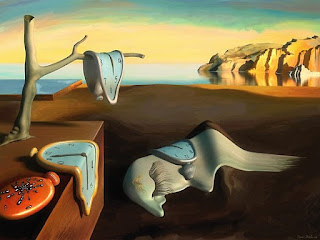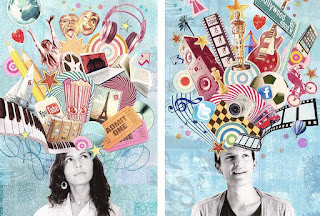Am I free?
Many people have told me that I don't have freedom. They weren't saying that to insult me or anything, but simply to state that, as a human person, I am not free.

The reasoning: I am a limited creature. Ever since I was born, I have been limited to the place I was born, my parents, the family I myself did not chose. My preferences and habits have been shaped by the environment in which I grew up, which again I did not chose. Therefore, my life is largely determined, and I am not free to do as I please. I can't fly like a bird or walk on water like an insect!
Let's settle a few things...
What I am born with
There are tonnes of things that we are born with. I never chose my parents, or my siblings, or the country I was born in. Arguably, I'm not the owner of my life, since I did not chose when I was born or when I will die naturally.
However, if I were the owner of my life, and I had chosen when I came into existence, that would be a contradiction. A creature cannot chose when they come into existence, because if I had chosen, then the fact I could think before my existence shows I existed beforehand. Similarly, if I could chose my parents, it would be like a creature constructing themselves and their nature, which again is contradictory. In a sentence, I would be the creature that created themselves.
If I had the ability to chose everything and had access to all knowledge, I wouldn't be a creature but a creator, since I would be aware of all my creations and thus would be able to chose from everything.
Thus, even though I am a limited creature, the fact we use the word 'creature' shows that using the word 'limited' is unnecessary; if you are a creature, then you're not a creator and you're limited by default.
I am limited in many ways: physically (eg- I don't have wings, so I can't fly), spiritually (my intelligence and negative habits/vices)
Limited vs determined
However, just because I am limited, does it mean I am not free? Let's see...
-I never chose my parents, but I can consciously reject them and move elsewhere
-I never chose my hair colour but I can dye it
You see, just because of the limited nature of my being, it does not mean I am not free. Yes, we have a limited freedom because the human person is a limited being (eg- I can't fly like a bird).
But we have freedom nonetheless, because it is an intrinsic characteristic of the human person.
No one can take away my freedom and my ability to consciously and voluntarily do things, which shows how freedom comes included in the human package (which will be explained in the next section).
In fact, it would be wrong to say 'I have' freedom, because that implies that someone can take it way from me. Rather I am free, just like I am a person.
Habits and free will
The fact I can build habits is the ultimate proof I am not determined and I'm free.
I remember watching the film Gattaca with a philosophy teacher. To give you a summary, it's about a boy who is born with a heart condition in a futuristic world, and he is told he will never amount to anything. Later, his parents decide to have a genetically engineered younger child, who was destined for greatness by his genes.
The useless boy who is said to be a 'biological-waste' for humanity ends up saving his younger, fitter brother from drowning because of his sheer determination and the habit he has built of rising above society's label for him.
He ends up concluding that society is wrong in believing genetics define people. A person is not a criminal from the second he/she is born just because their genes say so. They can voluntarily, when they grow up, go against this 'aggressive' gene people claim they have. I may be born with a natural tendency to laziness, but if I voluntarily push myself to study each day, I end up defying genetics once again.
Habit is the single word that destroys determinism and is also the proof of my freedom. I may have an impulse to do something (eg- I'm hungry, so I want cake), but I may reject it despite the fact my mind and body tell me to (eg- but my sister is hungrier so I'll give it to her).
Ultimately, any claim that a person is determined by the way they are born is clearly refutable, because a person is able to develop their character voluntarily, which would not be possible if I were not free.
Defining freedom
Humans are free by nature, but then again, what is freedom? In Orwell's 1984, Winston and Julia discussed a few requirements for freedom that were also noted by Aristotle...
- Intimacy
Physiologically, intimacy is what I think, want and wish (put simply). The human person recognises their worth deep down and their dignity, and the fact we don't walk around naked for everyone to see us is proof of this, because we want to be cherished rather than lusted and so we reserve ourselves.
In 1984, Big Brother could see everyone's thoughts and intentions. If this were the case, there would be no room for a person to think freely for themselves, out of fear of the consequences. A person would not be able to develop their character and build the habits they wish. Intimacy is an obvious requirement for freedom. And it's a requirement all humans meet, because no one knows anything about you until you somehow show/tell them.
- Truth
If there is no truth, there is relativism. This is a world where anything is correct (eg- killing others, stealing and crimes are all correct just as is helping someone, being kind etc.), and so law is nonexistent, because it is all relative.
This puts society into a hostile, self-destruct mindset, where a person is always at risk.
Relativistic societies tend to end in totalitarianism, because certain individuals recognise that society will accept anything, and so they take advantage of this to benefit themselves by making 'rules' or 'guidelines'. This is why in Orwell's Animal Farm, Napoleon ends up being in power, because out of all the animals, he is the only one who sees he can take advantage of everyone else's stupidity and relativistic mindset.
Alongside freedom, humans also recognise there is a fundamental right and wrong (eg- we can all agree killing others is wrong), and a relativistic society goes against this fundamental right and wrong people know of. It is going against ourselves.
This is why people are free: we know from day 1 there is a right and wrong, and so no one is born relativistic
If the law changed and from now on, no one is allowed to be kind, help others or do something that isn't for ourselves, would we be free? It would be the self-destruction of society, because we are going against ourselves and our fundamental sense of right and wrong.
In the film I mentioned above, the useless boy decides to leave Earth altogether, because and he concludes that he never belonged there in the first place; it was a place where he was taught people are worthless if they are not genetically flawless. This conclusion that he never belonged there in the first place matches our argument: man is not meant to live in a society that does not respect the fundamental truth we know (in this case, that every life is worth living, no matter their genes)
In the film I mentioned above, the useless boy decides to leave Earth altogether, because and he concludes that he never belonged there in the first place; it was a place where he was taught people are worthless if they are not genetically flawless. This conclusion that he never belonged there in the first place matches our argument: man is not meant to live in a society that does not respect the fundamental truth we know (in this case, that every life is worth living, no matter their genes)
-Conviction
This is probably the most important feature. In 1984, Winston was forced to say that 1+1=3. This is clearly wrong, but because of the death threat involved, he ended up writing '1+1=3 just as 1+1=2'. Obviously, Winston didn't believe '1+1=3', and that is why he was free. You may be forced to say things or do things, but you can never be forced to believe things or to change your convictions. This is why freedom is an intrinsic property of the human person, because no one can alter your convictions.
The three misconceptions on freedom
There are three common misconceptions on what 'freedom' is...
-Independence: If this were the case, then the maximum level of freedom would be solitude. We all know what happens when a person is put in solitary confinement.
-Autonomy: If I was entirely self-sufficient and not limited in any way by matter or time, I would be God. Again, this is contradictory to my nature, and I would no longer be human.
-Arbitrariness: This is the classic 'I do what I want to do when I feel like it'. However, this can end up having negative consequences. At what point does a person feel like revising for an exam, or not eating? Does a parent feel like getting up at 3 AM when their child is crying? But then what would happen if they didn't get up? What we feel like doing isn't necessarily what's right, and what will lead us to a positive outcome.



Comments
Post a Comment